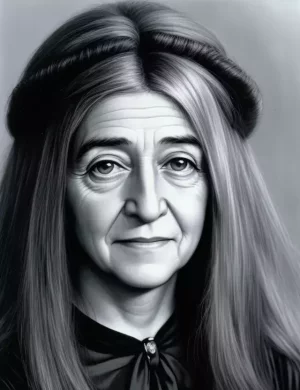Margaret Hamilton
Introduction to Margaret Hamilton
Margaret Hamilton, born on August 17, 1936, is a trailblazing computer scientist whose pioneering work in software engineering played a critical role in the success of the Apollo program, particularly the historic Apollo 11 moon landing. Beyond her contributions to space exploration, Hamilton's impact on computer science and her advocacy for women in the field have solidified her legacy as a true pioneer.
Early Life and Education
Margaret Heafield Hamilton was born in Paoli, Indiana, and from an early age, she displayed a keen interest in mathematics and science. Hamilton's educational journey led her to pursue a degree in mathematics from Earlham College, where she developed a strong foundation for her future contributions to the field of computing.
Rise to Prominence
Hamilton's rise to prominence in the field of computing began in the 1960s when she joined the Massachusetts Institute of Technology (MIT). She became the director of the Software Engineering Division of MIT Instrumentation Laboratory, where her team developed the onboard flight software for the Apollo missions. Her innovative approach to software engineering proved to be revolutionary and played a crucial role in the success of the Apollo program.
Apollo Program Contributions
One of Margaret Hamilton's most notable achievements was her leadership in developing the software for the Apollo guidance computer. Her team's work proved to be instrumental during the Apollo 11 mission, providing the necessary calculations for navigation and landing on the moon. Hamilton's insistence on error-checking routines, which later became standard in software engineering, prevented a potential abort of the Apollo 11 moon landing.
Impact on Software Engineering
Margaret Hamilton's contributions to software engineering extended beyond the Apollo program. Her emphasis on error prevention and fault tolerance became foundational principles in the field. She went on to co-found Hamilton Technologies, Inc., where she continued her work in software development and contributed to the evolution of programming languages and systems.
Advocacy for Women in Computing
Throughout her career, Hamilton has been a vocal advocate for increased participation of women in computing. She founded Higher Order Software, a company focused on software development automation, and has consistently worked to break gender barriers in the tech industry. Her commitment to diversity and inclusion has inspired generations of women to pursue careers in computing.
Recognition and Legacy
Margaret Hamilton's contributions to computing have been widely recognized. In 2016, she was awarded the Presidential Medal of Freedom, the United States' highest civilian honor, for her pioneering work. Her legacy extends beyond awards and accolades, as she continues to inspire future generations to push the boundaries of what is possible in the world of computing.
Margaret Hamilton's impact on the field of computing, space exploration, and the inclusion of women in technology cannot be overstated. Her story serves as a beacon of inspiration for aspiring scientists, engineers, and advocates of diversity in the ever-evolving landscape of technology.
